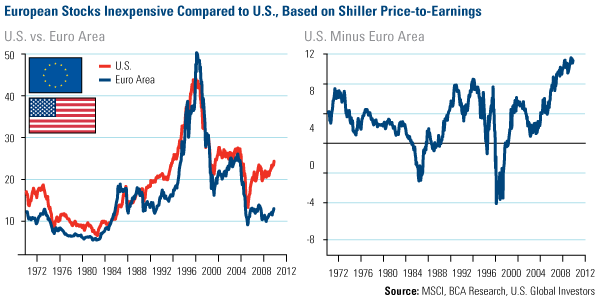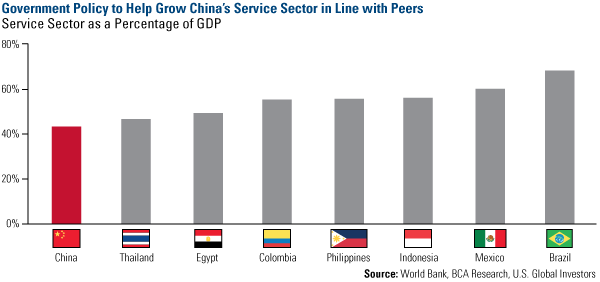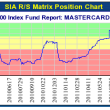Emerging Markets Radar (November 11, 2013)
Strengths
- Poland left its main interest rate unchanged at a record low to spur a quicker recovery in the largest Eastern European economy. Central Bank Governor Belka said the central bank is considering extending the period of record low rates into 2014 after inflation slowed to 1 percent in September. Price increases have stayed below the central bank’s 2.5 percent target throughout 2013.
- Capital Economics is of the opinion that October’s Manufacturing PMIs for Emerging Europe provide further evidence that the region’s recovery continued at the start of the fourth quarter. The Czech PMI is now consistent with manufacturing production, rising by around 2.5 percent from last quarter. The general picture is one of gradual improvement in the region and suggests that the recent recovery in Central Europe is in full swing.
- Despite an unexpected fall in Taiwan exports last month, the island nation’s trade surplus rose to $3.52 billion from $2.53 billion in September, also beating the analyst forecast for a $3.23 billion surplus. The 1.5 percent decline in exports was offset by a 2 percent increase in export orders during the month.
- China October exports were up 5.6 percent versus the 1.7 percent market consensus and -1.5 percent for September. Improving global PMI clearly had a positive impact on China’s exports, particularly exports to Europe rising 12.7 percent. Exports to the developed markets were better than to emerging markets since those markets are in the normalization stage as the economies are coming down from high growth rates in the last decade. China October imports also beat expectations by rising 7.6 percent versus the market consensus of 7.4 percent.
- As of November 7, 177 overseas-listed Chinese companies had reported their third quarter results. The total earnings of those companies grew 18 percent year-over-year in the quarter, up from 12 percent in the first half. So far, more than 2,400 A-share companies have also reported. The total earnings of those companies rose 21 percent in the third quarter up from 12 percent in the first half and 5 percent in 2012, according to Deutsche Bank Asia equity research group.
- China’s PMI for the non-manufacturing sector hit 56.3 percent in October, its highest level this year and up 90 basis points from 55.4 percent in September, indicating strong activities in tourism and consumer services.
- Political turmoil may be averted in Thailand after the amnesty bill failed to pass the parliament and the senate speaker promised to vote down the bill as well. Thailand Prime Minister Yingluck also softened her stand as the lower house wouldn’t resubmit the bill, though the issue will exist. Also in Thailand, the disinflation cycle ended as October headline inflation and core CPI edged up to 1.46 and 0.71 percent, respectively.
Weaknesses
- Russian inflation unexpectedly accelerated in October, strengthening the case for the central bank to refrain from cutting borrowing costs. The cost of living rose 6.3 percent from a year earlier, leaving it above the central bank’s target range for a fourteenth straight month. The central bank has kept interest rates unchanged since September 2012 even as the economy faces its worst slowdown in four years.
- The Brazilian real fell the most among emerging-market currencies on concern Brazil is not doing enough to curb its budget deficit. The government reported that the budget deficit increased in September to 3.3 percent of gross domestic product, the largest in four years, prompting plans by the government to eliminate tax breaks to shore up public finances.
- Stock markets in China, Hong Kong, Korea, Taiwan, and Association of Southeast Asian Nations (ASEAN) countries fell for five consecutive days this week as investors took profits after the summer’s market rallies. This decline was in spite of improving industrial activities globally and recovery in Europe and the U.S.
- The four biggest Chinese banks lent Rmb182 billion in October, the lowest monthly new loans in the year. The declining new loans are primarily due to decreases in interbank transactions in an effort to deleverage the financial system exposure in non-standardized wealth management products.
- Malaysia left its policy rate unchanged at 3 percent, fearing creeping inflation driven by domestic cost factors.
- Taiwan headline inflation moderated to 0.64 percent in October from 0.84 percent in September, surprising the market on the downside.
- To ease pollution and traffic jams, Beijing will reduce the number of new passenger vehicles allowed on the road by 38 percent next year.
- Indonesia GDP growth moderated to 5.6 percent in the third quarter from 5.8 percent in the second quarter this year after the trade deficit and currency depreciation affected domestic consumption and investments.
Opportunities
- A BCA Research commentary shows investor sentiment towards the eurozone continues to improve, which has helped a recovery in equity prices. In BCA’s opinion, much of the optimism is warranted, as the eurozone continues to benefit from Mario Draghi’s “whatever it takes” pledge, improved export competitiveness in the periphery, and growing pent-up demand for capital expenditures and consumer durable purchases. Despite the progress, European stocks still appear to be discounting a more pessimistic outlook than is warranted. The chart above shows that European stocks currently trade at a Shiller P/E of 13x, compared with 24x in the U.S. Although U.S. stocks have historically traded at a premium to their European counterparts, the current valuation gap is close to a historic high.
- Over the last couple of days, there have been increasing reports on plans to expedite the re-privatization of Greek banks from the Hellenic Financial Stability Fund (HFSF). The idea would be to have the HFSF make a public offer for the outstanding warrants in exchange for the common shares of the banks currently held by the HFSF. Warrant holders, largely hedge funds and other private financial institutions, could see a lift in the value of their holdings as it is expected the HFSF will provide a sweetener for investors to convert into common shares ahead of expiration. Similarly, the HFSF would benefit from disinvesting assets acquired during the peak of the crisis.
- As shown in the chart above, there is plenty of room for China’s service sector to catch up with the percentage of the service sector of national GDP in developing countries. China October non-manufacturing PMI was reaching a yearly high at 56.3, showing robust expansion. The Chinese government policies now are making it possible for private capital to enter service sectors such as banking, social services, and insurance. Among service sectors, tourism and e-commerce are the fastest growing sectors in China, which are dominated by private entrepreneurs.
Threats
- The European Commission has lowered its 2014 eurozone economic growth forecast to 1.1 percent, as it expects unemployment to remain high at 12.2 percent. The Commission also highlighted that it estimated the eurozone's economy will contract 0.4 percent this year following a decline of 0.7 percent in 2012. The Commission anticipates that the majority of core countries will gain momentum in 2014; however it warned that Spain, Greece, Italy and Portugal likely will continue to experience much weaker growth.
- Brazil Finance Minister Mantega announced the country’s plan to reduce lending by its development bank BNDES by about 20 percent next year. The plan is being implemented to shore up the country’s finances after posting the biggest budget deficit in almost four years, which some analysts believe could lead to a credit rating cut. BNDES, whose loan portfolio is larger than the World Bank’s, is responsible for more than half the credit creation in Brazil. A 20 percent credit reduction would imply a minimum 10 percent decrease in overall loan growth and would threaten the nation’s recovery prospects at a time of sluggish economic growth.
- Municipality governments in Beijing, Shanghai, and Shenzhen had announced tighter housing market rules by raising the down payment to 70 percent from 60 percent for second home buyers after rapid housing price appreciation in those first tier cities. The move, which may not be able to dampen housing prices and sales, has weakened stock prices of developers in the last three weeks
















